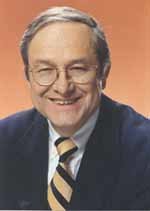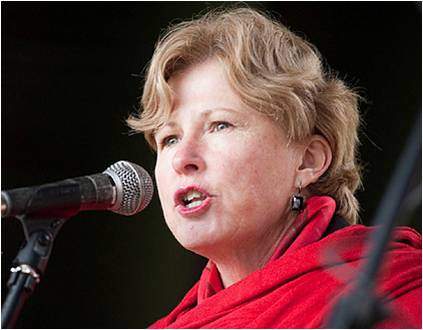Deceptionomics
by Brent Blackwelder
 This March, at the Environmental Film Festival in Washington, DC, I saw a documentary on the destruction of the Aral Sea in Kazakhstan, once the world’s fourth-largest inland lake. Soviet planners and decision makers fifty years ago decided to divert the two main tributary rivers of the Aral to grow cotton. Starved of fresh water inflows, the Aral Sea has shrunk to half its original surface area and lost 75% of its volume.
This March, at the Environmental Film Festival in Washington, DC, I saw a documentary on the destruction of the Aral Sea in Kazakhstan, once the world’s fourth-largest inland lake. Soviet planners and decision makers fifty years ago decided to divert the two main tributary rivers of the Aral to grow cotton. Starved of fresh water inflows, the Aral Sea has shrunk to half its original surface area and lost 75% of its volume.
The productive fishery was wiped out, salinity levels in the lake tripled, and the water has been poisoned with pesticides. I wondered what kind of deceptive economic calculations were used to justify destroying one of the natural wonders of the world.
I recently argued that today’s global marketplace is characterized by cheater economics — a corporate welfare system that has no part in a sustainable, steady state economy. There’s another type of economics that’s also in wide use today. It’s not quite as “in-your-face” as cheater economics, but it’s just as harmful because of the way it distorts reality. Deceptionomics uses “fool-you” accounting to omit genuine costs and misrepresent the true benefits and costs of economic transactions.
Robert Trivers’s new book The Folly of Fools examines the role of self-deception in human life. The animal kingdom is full of examples of deception by both predator and prey. For example, over 100 varieties of insects look like innocent twigs but consume other types of insects that unsuspectingly come close. Trivers applies his analysis of self-deception to the economics profession. Economics, he contends, is not yet a science because it fails to ground itself in underlying knowledge, namely biology. He writes:
…when a science is a pretend science rather than the real thing, it falls into sloppy and biased systems for evaluating the truth… [M]odels of economic activity must inevitably be based on some notion of what an individual organism is up to. What are we trying to maximize?
Here economists play a shell game, he notes, as they tell us that people attempt to maximize “utility.” However, when asked what constitutes utility, they reply, “Anything people wish to maximize.” How’s that for circular logic? Sometimes a person will try to maximize income, sometimes food, and sometimes sex over both food and income. So now we need “preference functions” to sort out all the competing preferences in an attempt to maximize utility, but, as Trivers points out, “economics by itself can provide no theory for how the organism is expected to rank these variables.”
Another big mistake by economists is the conflation of two senses of utility — the utility of your actions to yourself, and the utility of your actions to others. Most economists view these two kinds of utility as being aligned. Trivers says that economists “often argue that individuals acting for personal utility will tend to benefit the group.” Thus, they “tend to be blind to the possibility that unrestrained pursuit of personal utility can have disastrous effects on group benefit.” Trivers observes that economists assume (contrary to direct experience and biological evidence) that “market forces will naturally constrain the cost of deception in social and economic systems.” He notes with astonishment that “such is the detachment of this ‘science’ from reality that these contradictions arouse notice only when the entire world is hurtling into an economic depression based on corporate greed wedded to false economic theory.”
In a steady state economy, we would seek to minimize deceptive practices. We would not delude ourselves with the ruse that GDP captures the essence of well-being. Nor would we have separate moralities for business and community. We teach our kids not to squander their allowance and to save some for the future. In family and community settings, people care about the long term and consider what kind of world our children and grandchildren will live in. But in business circles, all attention is riveted on quarterly returns. Economists employ a discount rate in their calculations that values the future 100 years from now as being worth almost nothing.
The truly deceptive nature of our current economic system can be seen by looking at the big debate over oil prices and the attempt to blame President Obama for the high price of gasoline. Meanwhile candidate Newt Gingrich proclaims on national TV that he has a plan for $2.50-a-gallon gasoline. But even at $4.00 per gallon, the price of gasoline is deceptively low.
Every day the U.S. is spending approximately $2 billion buying gasoline. What is remarkable and not disclosed to the public, writes Amory Lovins in his new article in Foreign Affairs, is the $4 billion in losses stemming “from the macroeconomic costs of oil dependence, the microeconomic costs of oil price volatility, and the cost of having our military forces ready for intervention in the Persian Gulf.”
The International Center for Technology Assessment reported in 2001 on the deception involved in the price of gasoline. It found that the real cost of gasoline, when the crucial indirect or hidden costs are included, was between $9 and $15 higher than the price paid at the pump.
Such estimates rarely appear in the mainstream media. As a result, many people are unaware of the high environmental and social costs of our economic transactions. Even if we remain unaware of these costs, we still have to pay for them. We’d be better off eliminating the deception embedded in our institutions and making economic decisions based on knowledge of true costs including the environmental impacts of growth. As long as deceptionomics rules, fuzzy math will be used to justify incessant GDP growth, and one by one we must say goodbye to the Aral Seas of the world.







Thank you, Mr. Blackwelder! Two thoughts I’d like to add: First, economists tend to ignore or be unaware of the possibility of non-transitive preferences. With a minimum of three options and three criteria for choice, it is easy to generate situations in which A is better than B, B is better than C, but C is also better than A. I’ve come to think this is the normal situation in life. My microeconomics professor in the 1980s, however, declared firmly that non-transitive preferences were impossible!
Second, it seems to me that economics never will be and should not aspire to be a science analagous to physics or any of the disciplines whose goal is capturing “truth”. Economics should be seen as more of a craft, like woodworking or the art of restoring old machinery, the goal of which should be creating something useful and beautiful, something that endures and that serves the needs and desires of ordinary people for a very long time. Its assumptions should be simple, widely accepted, and very obviously in line with consensus reality. Its methods of reasoning should be sound and transparent, and they should lead to good public policy decision making. I don’t think economics and public policy can or should be separated and by now I am certain that economic reasoning that leads to bad public policy is bad reasoning.
I think, in fact, that we need an entirely new way of conceiving the economy and and entirely new economics to help us think about it. I’ve developed what I consider one possible starting point for such a system of thought, which I’d be happy to share with anyone who is interested.